The perfect motion: the Royal Cambodian Ballet
Kept within the confines of the royal palace, classical Cambodian dance was for centuries a sacred and secret art, reserved for the king and […]
At the age of 50 Pav Navy is drawing on her troubled personal history to help young Khmer people to know themselves and their emotions in her role of Director of Training for the Cambodian NGO Karol & Setha – which aims to promote the development of personal, family and social relationships.
TEXT & PHOTOS: NICOLAS CHRISTIANI
In the classroom there is a silence which weighs almost heavily. In front of the blackboard two girls are sitting cross-legged facing one another. In a semi-circle around them some 20 teenagers sit, watch and listen. From her position nearby a lady of around 50 with sparkling eyes and salt and pepper hair down to her shoulders offers gentle encouragement to the two protagonists. One of them, a 14-year-old called Neuk, begins to speak hesitantly in her native Khmer tongue without allowing herself to become distracted by the stranger at the back of the room who is looking on. What is said in this room stays within the room; this rule applies to all Karol & Setha sessions, and is fundamental to creating an environment in which the young people are ready to open up.
Neuk shares her current problems and concerns with her friends. She faces choices to do with her education. Like most of the others Neuk comes from a poor family and is under great pressure to start earning as soon as possible. Sitting opposite, her alter ego listens and tries to offer alternatives. When she runs out of ideas she turns to the adult facilitator, Pav Navy, who takes over. Neuk continues to talk. No longer intimidated, she seems now to be speaking from the heart. Soon she is crying more than she is talking. Her audience is quiet, respectful and empathetic. Calm returns. Pav continues to prompt Neuk who carries on with her monologue in determined fashion before bringing it to an end with a big smile.
Although the session has lasted no more than about ten minutes Neuk has experienced all sorts of emotions. “What is most important” observes Pav happily “is that Neuk has come to her own conclusion; it has not come from her friends or from her teachers. But without taking part in this exercise she would most likely not have found it.” Pav calls it collective theatre, and it is often used by Karol & Setha. “The objective is to teach active listening to the young people taking part by means of a concrete example which has been lived by one of their number. In this way they not only learn how to listen better to what others have to say, but also to listen to themselves – which enables them to find solutions to their own problems, as Neuk has just done”.
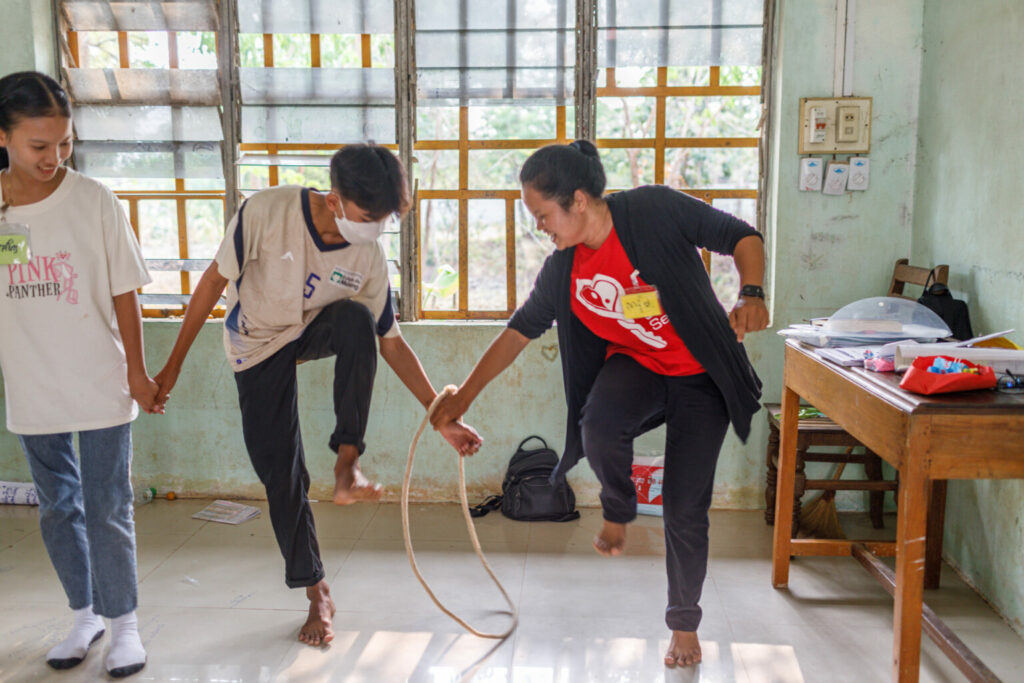
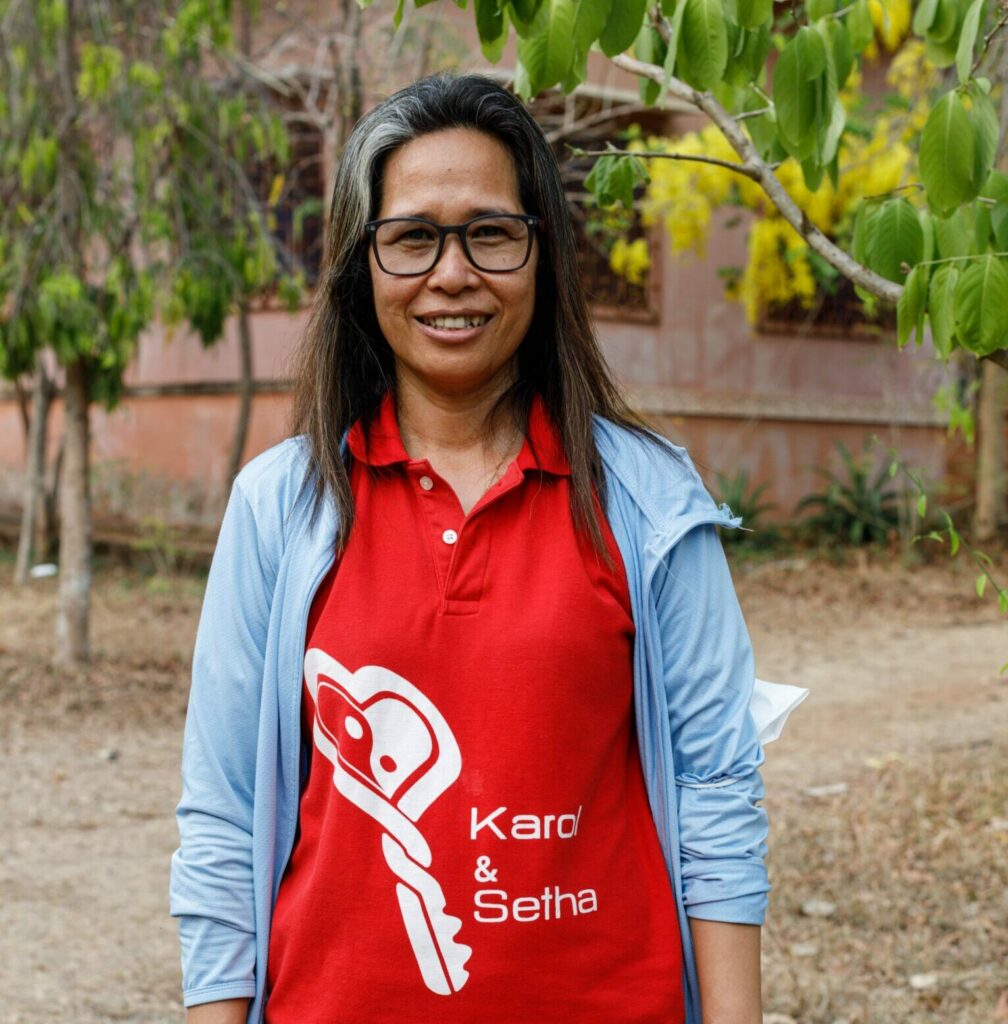
Pav Navy is the Director of Training for Karol & Setha in Cambodia
For her Karol & Setha is much more than a job; it is a vocation. “It has given me so much, helped me to grow as an individual, and made me a better person”.
Karol & Setha is a training programme, launched in 2004, which aims to promote the development of personal, family and social relationships.
Aimed primarily at young people and their parents in Cambodia it forms part of the Children of the Mekong’ holistic training programme. Developed by Jean-François and Myriam Frys, what sets this training programme apart is that, unlike so many others, particularly when it comes to the emotions, it has not been imported from a western country, but is a training programme which was conceived by Khmer people for the benefit of Khmer people.
The objective is to address the deep-rooted relationship problems inherent in contemporary Cambodian society. This is a huge topic which brings together issues of the heart, mind, body and soul – including, of course, social, emotional and sexual relationships, subjects which are often taboo in Cambodian households. Pav has been involved in the project from the outset, and is now the Director.
“I originally qualified as a vet, but several years ago now I retrained to become a psychologist and family therapist” she explains in fluent English, smiling softly. The story could stop there. It would already be extraordinary: an educated woman deciding to devote herself to improving family relationships and to helping young people deal with their emotional problems in Cambodia, the country of her birth. But when she was younger and uneducated – as a child, adolescent and young woman – Pav experienced at first hand all the ills that she is now trying to understand and cure. For her Karol & Setha is more than a job; it is a vocation: “It has given me so much, helped me to grow as an individual and made me a better person.”
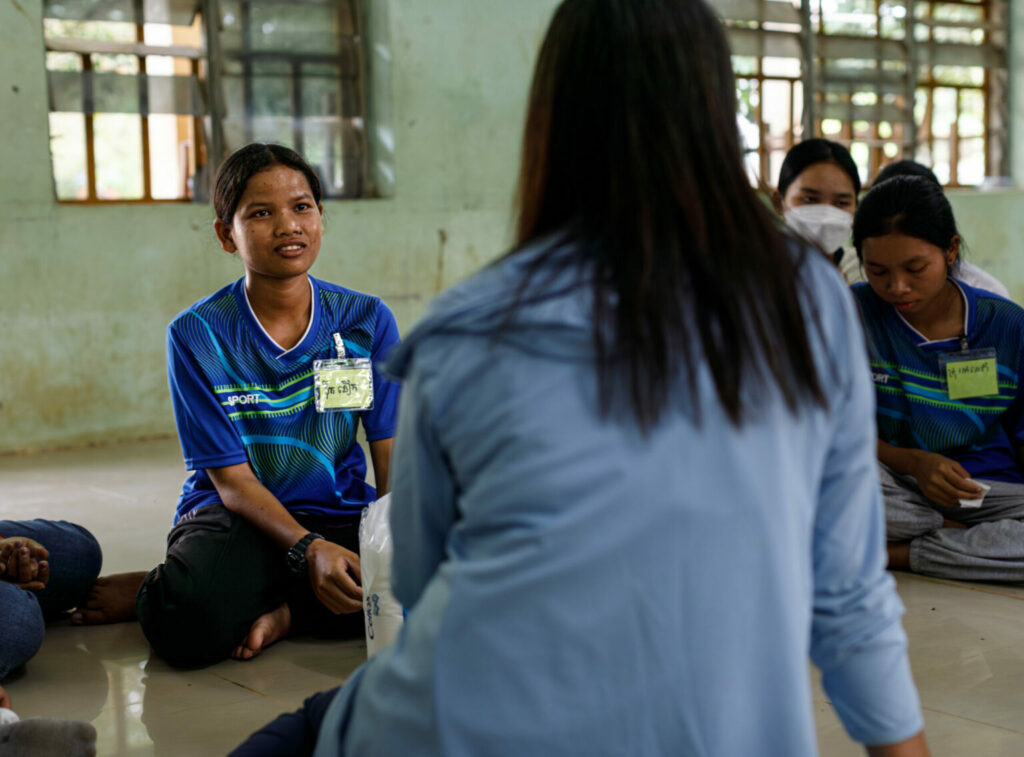
Born in a village in Prey Veng province, more than 40 miles from the nearest town, Pav spent her childhood in the rural Cambodia of the 1970s, which was in ruins under Khmer Rouge rule.
She left the family home when she was eleven. Her parents were illiterate and could not make up for the lack of a school in the village. “From that point on I only ever went home once a year – at New Year. For me it was a way of escaping the domestic violence to which my father subjected us.” It took time for Pav to recognise the extent to which she had been damaged by her home environment. “As a young woman I was determined to hate men and to devote myself wholeheartedly to women’s lib but a young man who had long admired me asked my parents for my hand in marriage, and they accepted.” Out of filial duty, and because in Cambodia nothing is ever resolved by confrontation, Pav accepted her fate whilst telling herself that she would again be free once she had got a divorce.
“The love my husband showed me was what first caused me to have doubts. He knew how to bring me round” confides Pav with a smile. “For the first year we lived together like a couple of flatmates, not as a married couple! He understood and respected me. Little by little I began to realise that not all men are bad; some even have kind hearts.” It was at this time, in 2004, that she joined Karol & Setha. The young wife immersed herself greedily in exploration of a new world – human psychology, and, in particular, the differences between male and female psychology – that still seems to her to have no limits.
“I wanted to understand people, and I wanted to know my husband better. I wanted to love him for what he was, with my body, with my heart and with my soul” explains Pav, opening up more and more. “Studying psychology made me realise that I could not love my husband properly unless I first learnt to love myself.” To love others you first need to love yourself. A whole new approach, Pav quickly recognised, requiring her to examine her own past through fresh eyes. “My father just took; he never ever gave. My mother, on the other hand, gave her all but got absolutely nothing in return. Their relationship was profoundly toxic.” Such relationships are very common in Cambodian families, but it was only by recognising the mistakes made by her parents, and forgiving them, that Pav was, she declares, able to free herself from her past. Whenever she wants to review how she feels about something she now starts with this basic premise: “If you want relationships in your family to be harmonious, try and give more than you take, and encourage others in your family to give rather than to take”.
“In Cambodia there are lots of people who talk, but very few who listen”
Pav is keen to share this thirst for knowledge, which resonates with her our own experience, both with young people, to help them avoid the pitfalls she encountered, and with families, to help them rebalance relationships. “In Cambodia there are lots of people who talk, but very few who listen”. So she works tirelessly, running the Karol & Setha programme for young people and for families, and then, on Saturdays, at her private psychology practice in the capital, Phnom Penh. “I can identify with my patients’ problems from personal experience, and that helps me to help them better.” It is that experience which has made her strong and which allows her to speak authoritatively and caringly to young people who are need of help and guidance.
“Today’s world is riskier than ever for Khmer youngsters” believes Pav – and this from a woman who grew up with genocide. And today’s evil has a name: pornography. “Parents who are preoccupied with financial problems have less time to devote to their children, and no longer guide them on what is good, what is bad and what is risky. There are few good role models in Cambodia. Lots of parents prefer to spend their time drinking or relaxing with friends rather than setting aside quality time to spend with their children.” Often left to their own devices, children turn for guidance to their peers and whatever they can find to hand. As far as personal relationships are concerned that means the Internet and pornography. “Online, they are genuinely keen to discover what love means, and how to find it, but pornography is an industry that exists only to make as much money as possible. I believe that it is a crime to expose children to pornography. Pornography destroys love.”
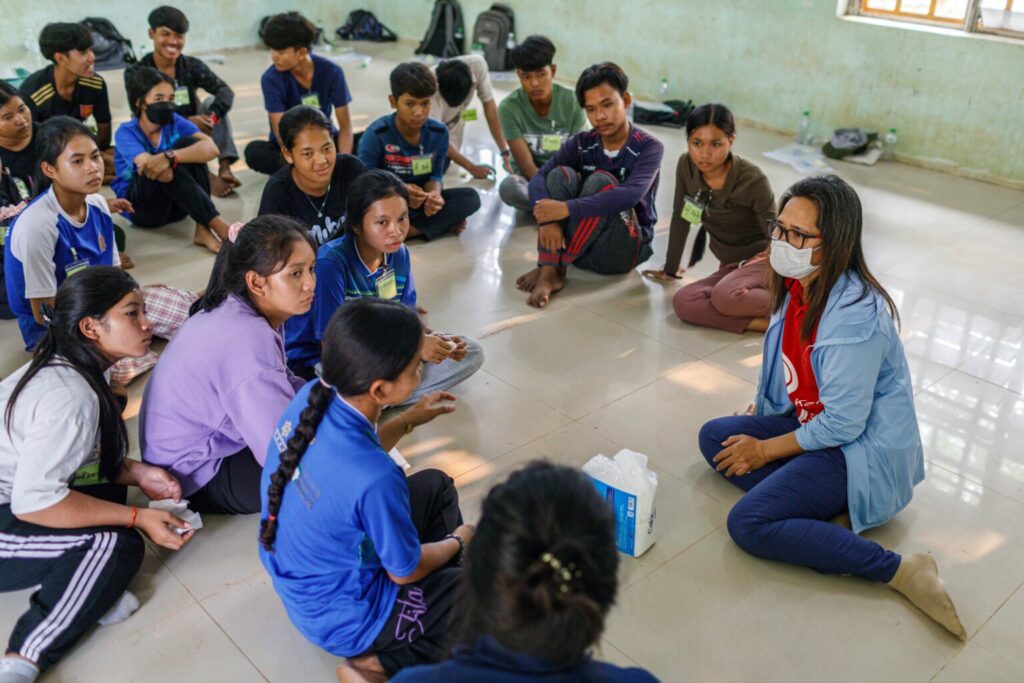
Covid made things worse, says Pav. “Before Covid in the poor areas where I work only a few teenagers used pornography. Today most of them have seen it, on social media or elsewhere. They are totally confused, questioning their gender, their sexual orientation and much else besides.”
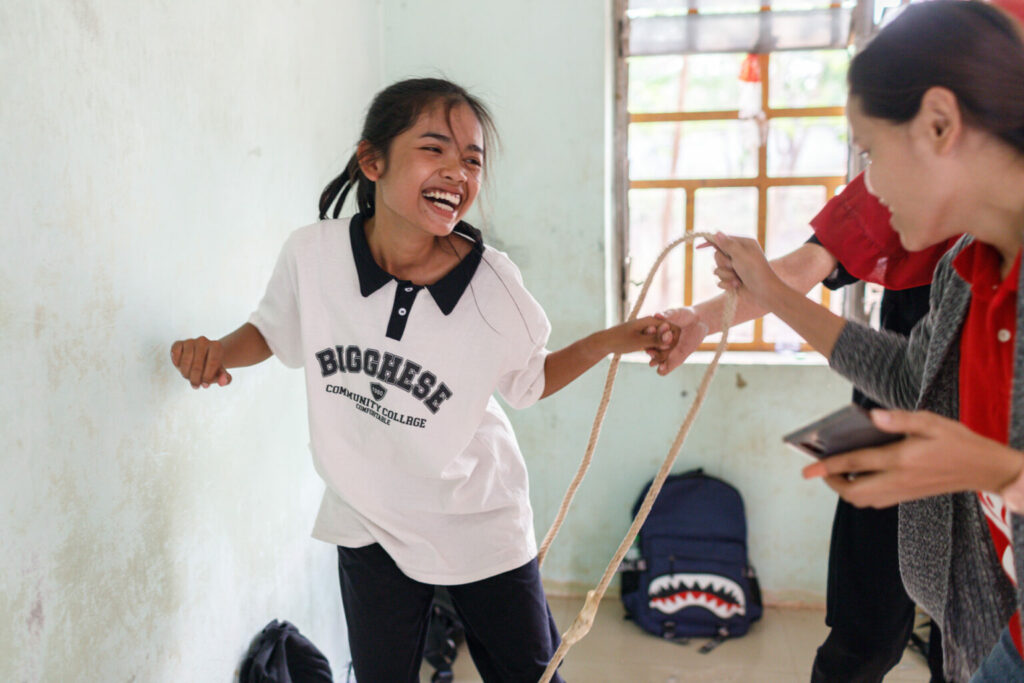
“It is essential that the priority is given to affording Khmer people the opportunity to express their emotions and to develop self-esteem”
The traditional Khmer family is at a loss for a response, bearing in mind that many families have problems of its own, of which casual everyday adultery is not the least. “When I was about to get married” explains Pav ” my mother told me that when a husband is away from home he will do whatever he wants; only when he is at home will he be yours. It was her way of warning me. Most men in Cambodia are unfaithful. My father was no exception.” But studying psychology made Pav realise that such behaviour is very often linked to a lack of self-esteem – further validating the approach taken by Karol & Setha. “Male infidelity is as much a way of boosting men’s self-esteem as it is a sign of lack of self-esteem in the women who accept it because it has always been part of their culture” she explains “but developing self-esteem in the young helps to prevent it”. Traditional Khmer family structure eats away at self-esteem. “Parents never offer praise or encouragement but they are always quick to criticise” continues Pav. “Often children obey the head of the household without knowing or understanding why. Some people are prepared to accept this culture, but in fact it is supremely toxic”.
And that is why the kind of training offered by Karol & Setha in Cambodia is so important, emphasises Pav. “It is essential that the priority is given to affording Khmer people the opportunity to express their emotions and to develop self-esteem” she says with a conviction which is rooted in personal experience, and which she tries to share today with as many others as possible.
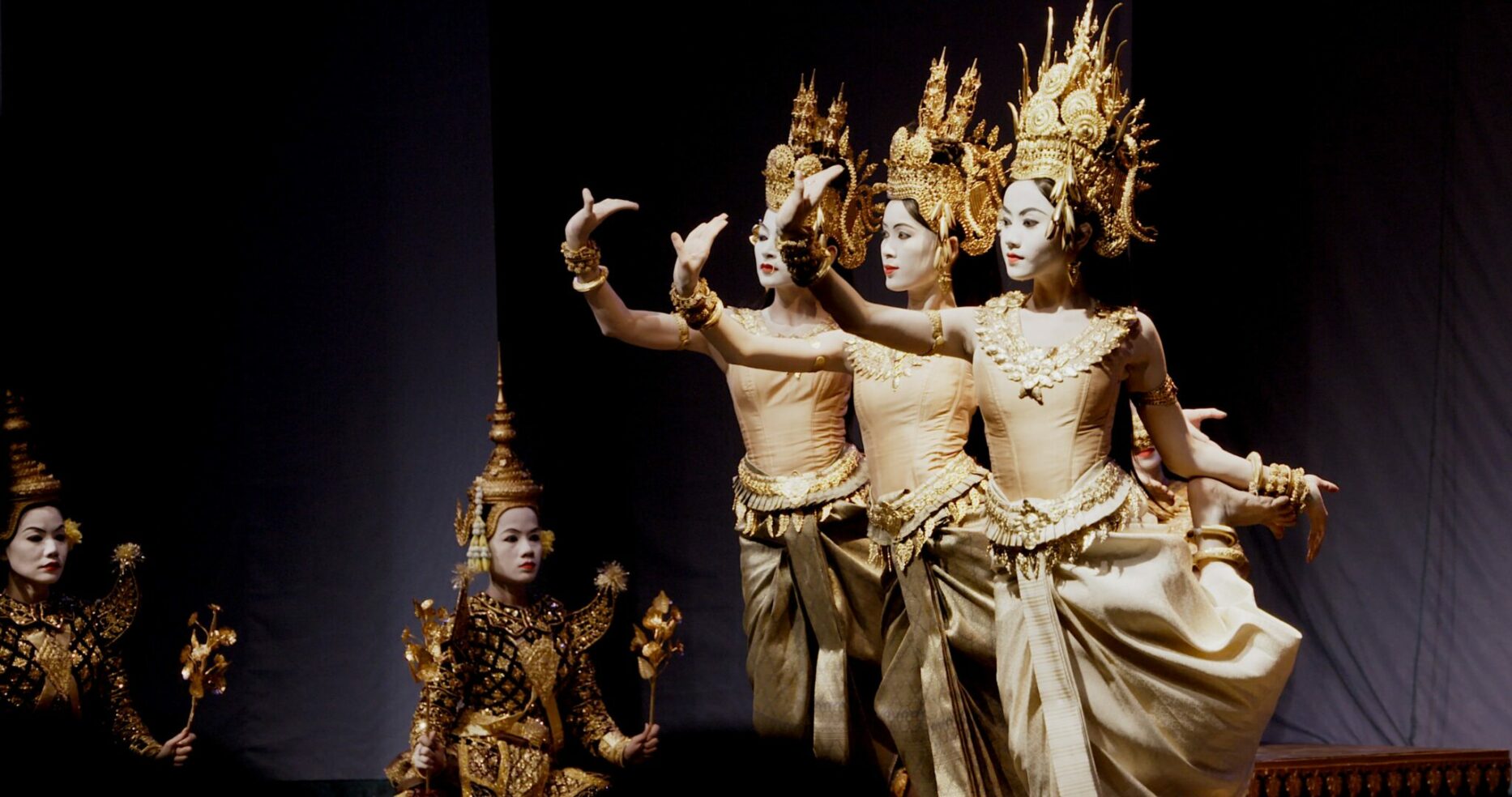
Kept within the confines of the royal palace, classical Cambodian dance was for centuries a sacred and secret art, reserved for the king and […]
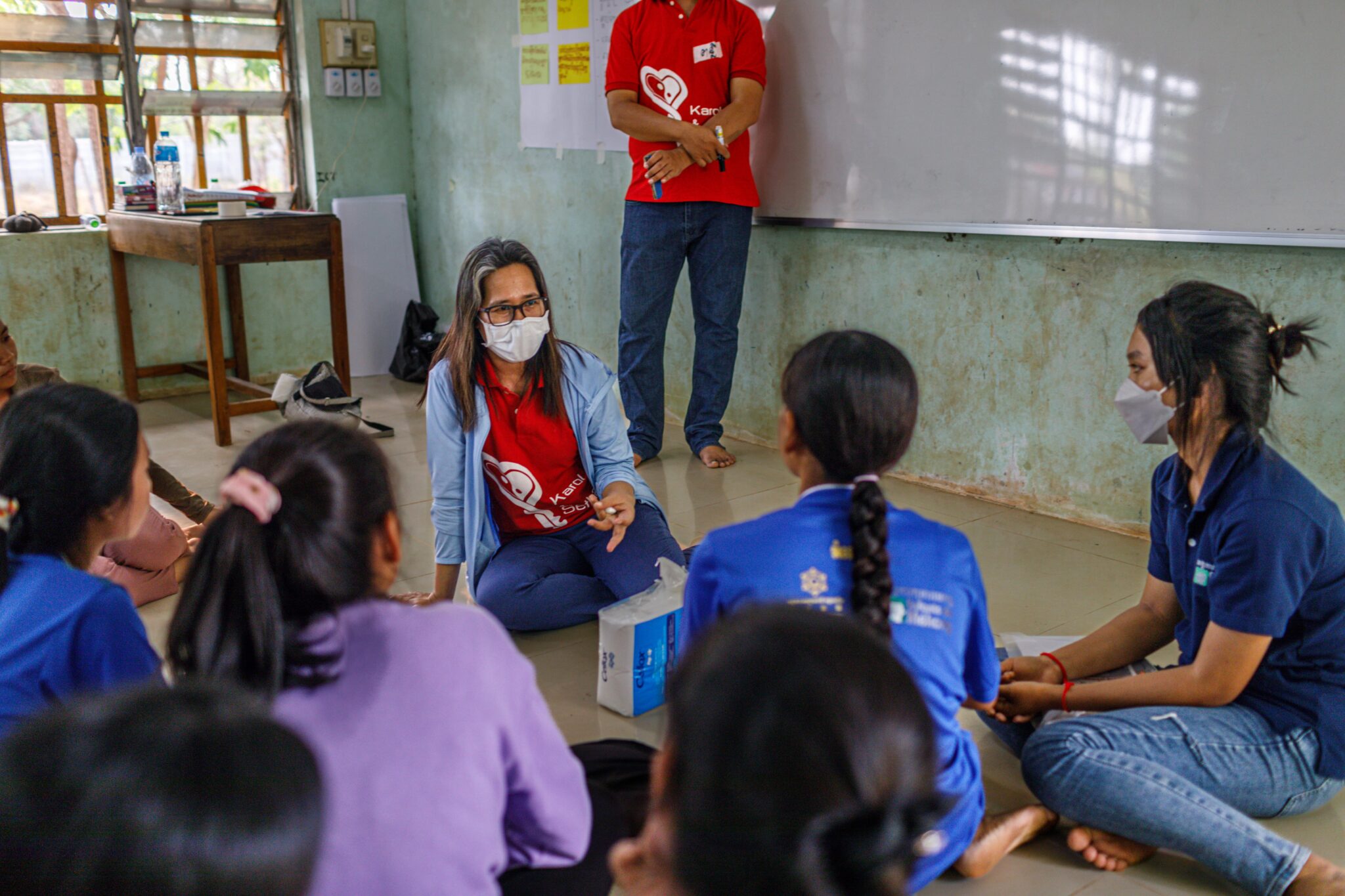
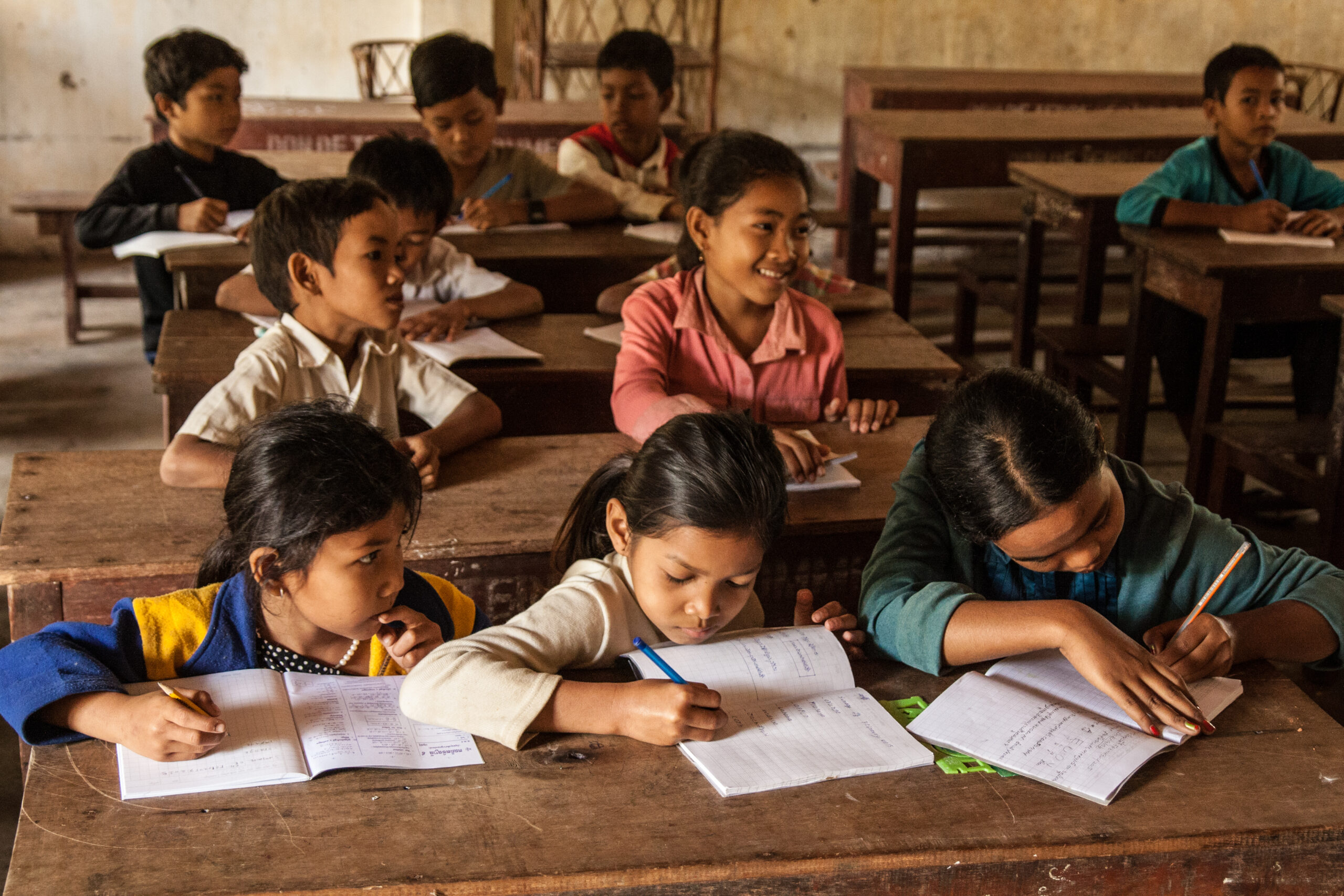

Kendall, Jonathan & Hugo are on a world tour with their family. They have been sponsoring the education of a little Cambodian girl, Vichika […]